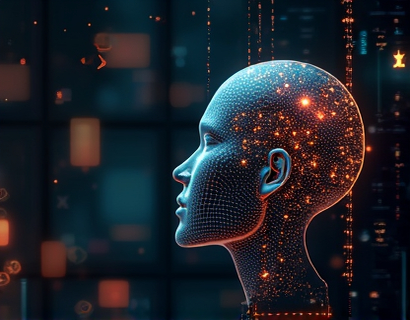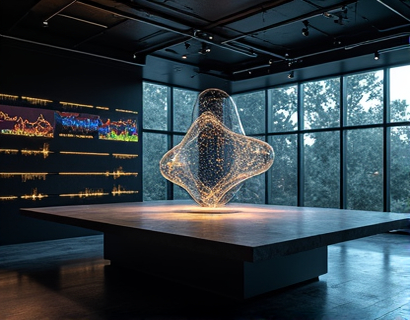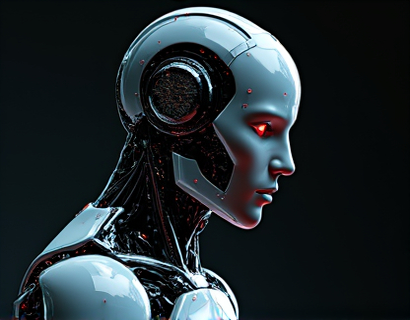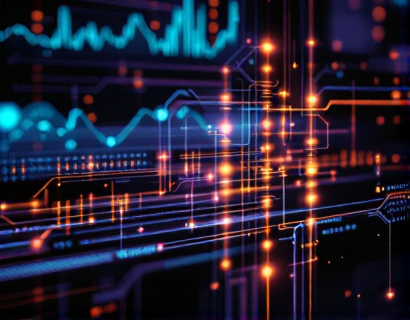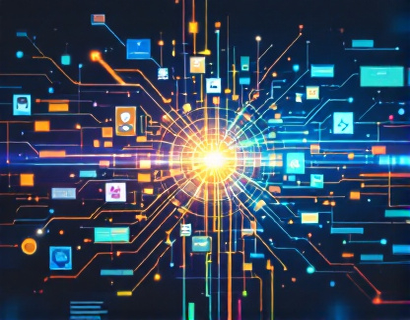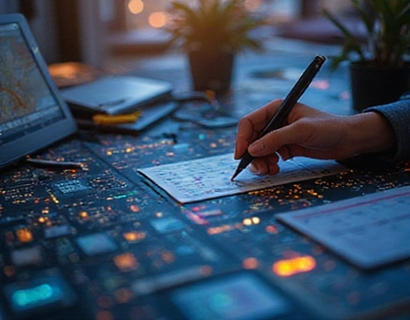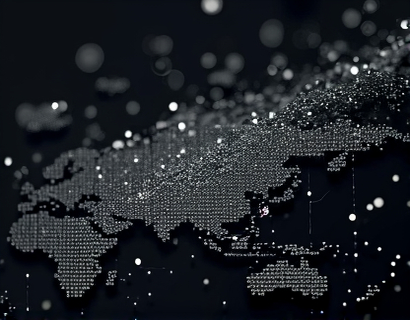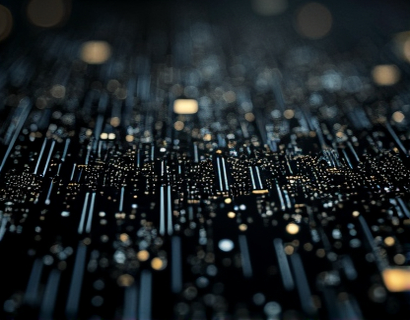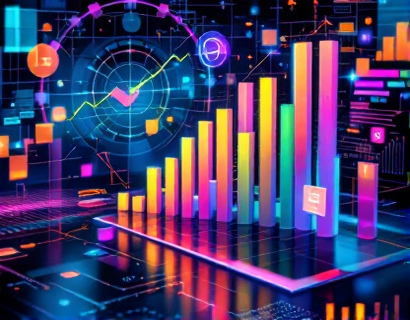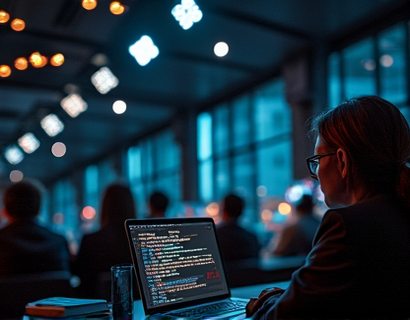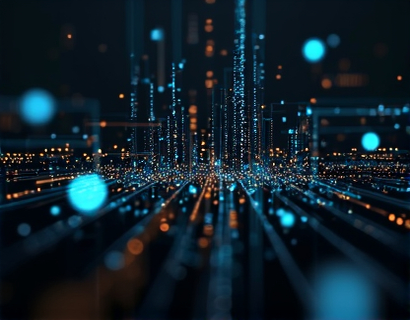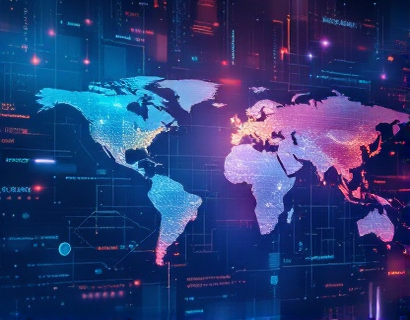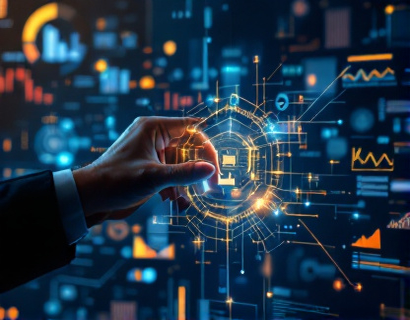Unlocking Next-Gen Productivity: The Synergy of Crypto and AI
The digital age has ushered in a revolution in productivity, driven by the powerful combination of cryptocurrency and artificial intelligence. This synergy is reshaping the way tech enthusiasts and digital visionaries approach tasks, offering innovative solutions that streamline processes and enhance efficiency. As we delve into this topic, it's essential to understand the foundational technologies and their applications, as well as the potential future developments that could redefine productivity in the years to come.
Cryptocurrency, since its inception with Bitcoin in 2009, has evolved from a niche digital currency to a transformative force in various industries. Beyond its role as a medium of exchange, cryptocurrencies leverage blockchain technology to provide secure, transparent, and decentralized systems. This technology underpins not only financial transactions but also a wide array of applications, from supply chain management to identity verification. The immutable and tamper-proof nature of blockchain makes it an ideal foundation for building trust and efficiency in digital interactions.
Artificial intelligence, on the other hand, has been rapidly advancing, driven by improvements in machine learning, natural language processing, and computational power. AI's ability to analyze vast amounts of data, recognize patterns, and make predictions has opened up new possibilities in fields ranging from healthcare to finance. When combined with the security and transparency of blockchain, AI can achieve unprecedented levels of performance and reliability. This convergence is giving rise to innovative digital solutions that are redefining productivity in the modern workplace.
Enhancing Task Management with Blockchain and AI
One of the most immediate areas where crypto and AI are making an impact is in task management and project coordination. Traditional project management tools often suffer from issues like data silos, lack of transparency, and manual overhead. By integrating blockchain and AI, new platforms can offer a more seamless and efficient experience.
For instance, a blockchain-based task management system can ensure that all tasks and their statuses are recorded in a transparent and immutable ledger. AI can then analyze this data to predict task completion times, identify bottlenecks, and suggest optimal resource allocation. This not only improves accountability but also enables real-time adjustments to project plans, ensuring that teams stay on track and meet their deadlines more consistently.
Moreover, smart contracts can automate routine tasks such as payment processing and milestone triggers. When a task is completed and verified by AI, a smart contract can automatically release funds to the relevant parties, eliminating the need for intermediaries and reducing transaction costs. This automation not only speeds up the workflow but also minimizes the risk of human error and fraud.
Optimizing Content Creation with AI-Powered Tools
Content creation is another area where the combination of crypto and AI is revolutionizing productivity. In the digital landscape, high-quality content is crucial for engaging audiences and building brand authority. However, creating and curating content can be time-consuming and resource-intensive.
AI-driven content generation tools can significantly streamline this process. These tools use natural language processing to generate articles, social media posts, and even code documentation with high accuracy and consistency. By integrating blockchain, these tools can ensure the authenticity and ownership of content, preventing plagiarism and unauthorized use.
For instance, an AI-powered content platform can analyze trending topics, audience preferences, and existing content to generate tailored content pieces. Blockchain can then be used to create a verifiable record of content creation and distribution, providing transparency and traceability. This not only enhances the credibility of the content but also allows creators to monetize their work through tokenized rewards, incentivizing high-quality content production.
Decentralized Data Storage and AI Analytics
The integration of blockchain and AI extends to data storage and analytics, areas critical for modern businesses seeking to harness the power of big data. Traditional data storage solutions often rely on centralized servers, which can be vulnerable to breaches and outages. Blockchain-based decentralized storage systems, such as IPFS (InterPlanetary File System), offer a more robust and secure alternative.
In a decentralized storage system, data is fragmented and stored across a network of nodes, making it highly resilient to attacks and failures. AI can enhance this system by optimizing data placement, ensuring that frequently accessed data is stored on nodes with the highest availability. Additionally, AI algorithms can analyze stored data to uncover insights and patterns that would be difficult to detect manually.
For example, a business could use AI to analyze customer behavior data stored on a blockchain-based platform. The AI can identify trends, predict future behaviors, and provide actionable recommendations. The immutable nature of blockchain ensures that the data remains tamper-proof, building trust in the insights generated. This combination of decentralized storage and AI analytics empowers businesses to make data-driven decisions with confidence.
Enhancing Cybersecurity with Blockchain and AI
Cybersecurity is a paramount concern in the digital age, and the synergy of blockchain and AI offers powerful tools to bolster defenses. Traditional security measures often struggle to keep pace with evolving threats, but blockchain and AI can work together to create a more dynamic and resilient security framework.
Blockchain's decentralized and transparent nature makes it difficult for attackers to compromise the entire system. AI can further enhance security by continuously monitoring network activity, detecting anomalies, and responding to threats in real-time. Machine learning algorithms can be trained to recognize patterns indicative of cyberattacks, such as unusual login attempts or data exfiltration attempts.
Moreover, AI can help in managing and updating security protocols automatically. For instance, AI-driven systems can analyze the latest threat intelligence and adjust firewall rules or encryption settings accordingly. Smart contracts can be programmed to execute security protocols based on predefined conditions, ensuring that security measures are always up-to-date and effective.
Personalized Learning and AI-Driven Education Platforms
The education sector is also benefiting from the convergence of blockchain and AI. Traditional educational systems often lack personalization, leading to a one-size-fits-all approach that may not cater to the diverse needs of students. AI-powered education platforms can analyze individual learning patterns and preferences, providing personalized content and learning paths.
Blockchain can play a crucial role in this ecosystem by ensuring the integrity and ownership of educational credentials. Digital diplomas and certificates stored on a blockchain are tamper-proof and easily verifiable, reducing the risk of fraud and enhancing trust in educational achievements. AI can further streamline the learning process by recommending courses, identifying knowledge gaps, and providing real-time feedback.
For example, an AI-driven educational platform can use blockchain to store and verify a student's learning history and achievements. The AI can then curate a personalized curriculum based on the student's strengths, weaknesses, and learning style. As the student progresses, the platform can continuously update the learning path, ensuring that the education remains relevant and effective.
Supply Chain Optimization with Blockchain and AI
Supply chain management is another critical area where the combination of blockchain and AI can drive significant improvements. Global supply chains are complex and often plagued by inefficiencies, such as delays, fraud, and lack of transparency. By leveraging blockchain for traceability and AI for optimization, businesses can create more resilient and efficient supply chains.
Blockchain can provide a transparent and immutable record of every step in the supply chain, from raw material sourcing to final delivery. Each transaction is recorded on the blockchain, creating a verifiable audit trail that enhances trust and accountability. AI can analyze this data to identify bottlenecks, predict delays, and optimize logistics.
For instance, an AI-powered supply chain management system can use blockchain data to monitor the location and condition of goods in real-time. Machine learning algorithms can predict potential delays based on historical data and current conditions, allowing for proactive adjustments. Smart contracts can automate processes such as payment upon delivery verification, reducing administrative overhead and ensuring timely payments.
Conclusion: The Future of Productivity
The synergy of cryptocurrency and AI is poised to transform productivity in numerous ways, offering solutions that are more secure, transparent, and efficient. From task management and content creation to data storage, cybersecurity, education, and supply chain optimization, the potential applications are vast and varied. As these technologies continue to evolve, we can expect even more innovative solutions that further enhance our digital capabilities.
For tech enthusiasts and digital visionaries, embracing this convergence is not just an option but a necessity. By staying informed and exploring the possibilities, we can unlock next-generation productivity and lead the way in the digital transformation of industries worldwide.





